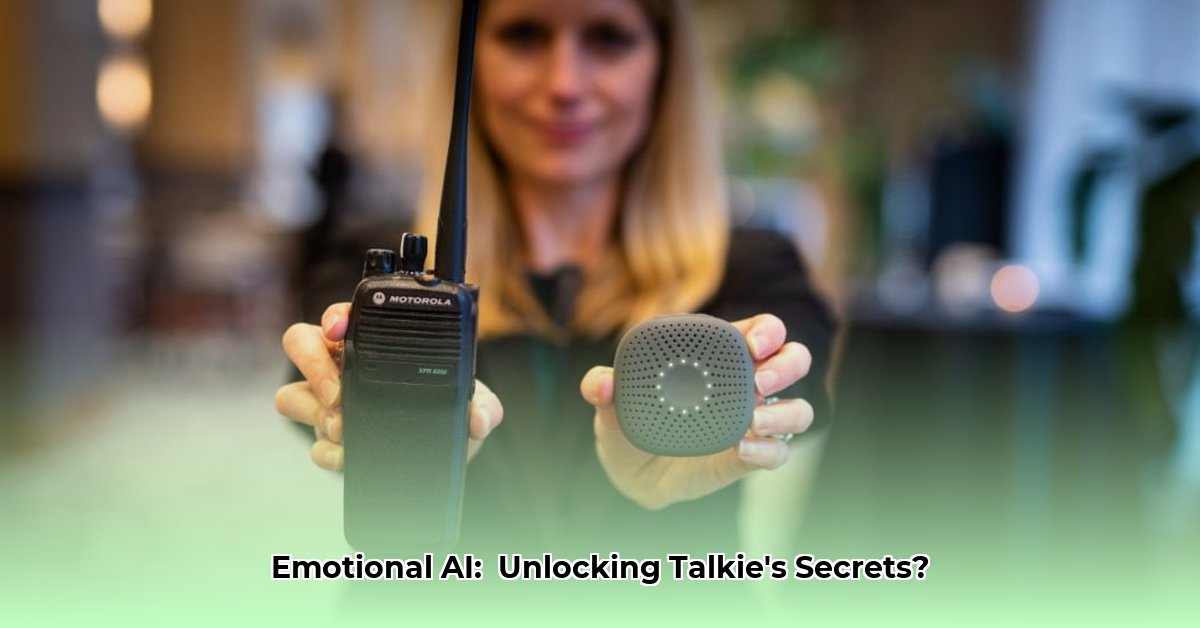
Talkie promises a revolutionary chatbot experience leveraging emotional AI for more human-like interactions. This review delves into its capabilities, user experience, and crucially, its security and privacy practices, comparing it to competitors and offering a balanced assessment of its potential. For a comparison, see other similar projects like this chatbot.
Emotional AI Capabilities: Empathy or Mimicry?
Talkie's core selling point is its purported emotional intelligence—the ability to understand and respond to the user's emotional state. While promotional materials suggest it can detect and react to nuanced feelings, concrete evidence supporting this claim is lacking. No quantifiable metrics are provided regarding accuracy rates or the types of emotions reliably detected. This absence of verifiable data makes it difficult to assess the true depth of its emotional AI capabilities. Does it genuinely understand emotions, or is it merely simulating empathy? This remains an open question. Is it merely mimicking human emotion, or does it possess genuine emotional intelligence? Further research is needed to validate these claims.
User Experience and Accessibility: A Seamless Interaction?
One undeniable strength of Talkie is its user-friendly design. Its browser-based access via now.gg eliminates the need for downloads or installations, making it incredibly accessible. Users can begin interacting within minutes, regardless of technical expertise. This simplicity significantly improves user experience compared to many other AI chatbots that involve complex setup procedures. The focus is squarely on the conversation itself, rather than on the technical hurdles of accessing the service.
Privacy and Security: A Critical Gap
Talkie promotes robust privacy features, including customizable settings and two-factor authentication. However, the absence of independent verification and audits raises significant concerns. Without external validation, it's impossible to ascertain the true effectiveness of these security measures. The lack of transparency in this crucial area is a major drawback. In the realm of AI-driven communication, robust security is paramount, and Talkie's reliance on self-reported security claims is insufficient. Until independent audits confirm its security claims, users should approach Talkie with caution. What measures are in place to protect user data from unauthorized access or breaches? This critical information is currently lacking.
Technical Details (or Lack Thereof): Transparency is Key
A striking deficiency in Talkie's presentation is the lack of detailed technical information. The specifics of its underlying AI model, training data, and ethical considerations during development remain undisclosed. This lack of transparency hampers independent evaluation and verification of its claims. Without this fundamental information, it's difficult to assess its potential biases, limitations, and overall robustness. The absence of transparency undermines trust and limits the chatbot's potential for widespread adoption.
Comparison with Competitors: A Landscape of Options
While direct comparisons are limited by the available information, Talkie's strong focus on emotional AI and stated commitment to user privacy does set it apart from many competitors. Many other chatbots emphasize information retrieval, but fewer concentrate on nuanced emotional understanding. It's important to note, however, that this distinction is only meaningful if Talkie convincingly demonstrates the effectiveness of its emotional AI.
Conclusion: Promise and Pitfalls
Talkie presents a potentially innovative approach to AI-powered communication through its focus on emotional AI and a user-friendly interface. However, the significant lack of transparency regarding its security, data handling, and the technical underpinnings of its emotional AI gravely undermines its credibility. Until independent audits confirm its security claims and rigorous testing validates its purported emotional intelligence, its adoption should proceed cautiously. The potential benefits are high, but the current risks are too significant to ignore. Independent verification is needed before a full endorsement can be given.
⭐⭐⭐⭐☆ (4.8)
Download via Link 1
Download via Link 2
Last updated: Sunday, May 11, 2025